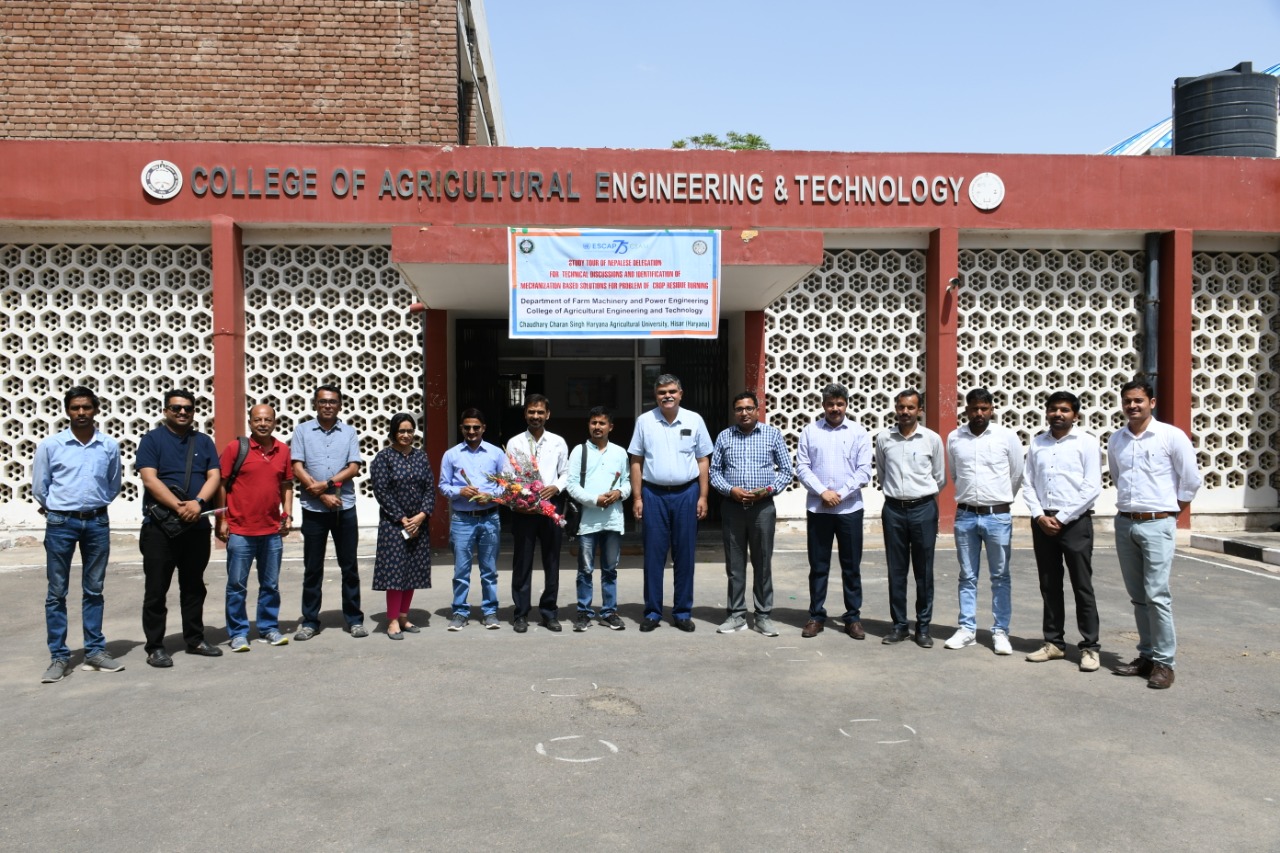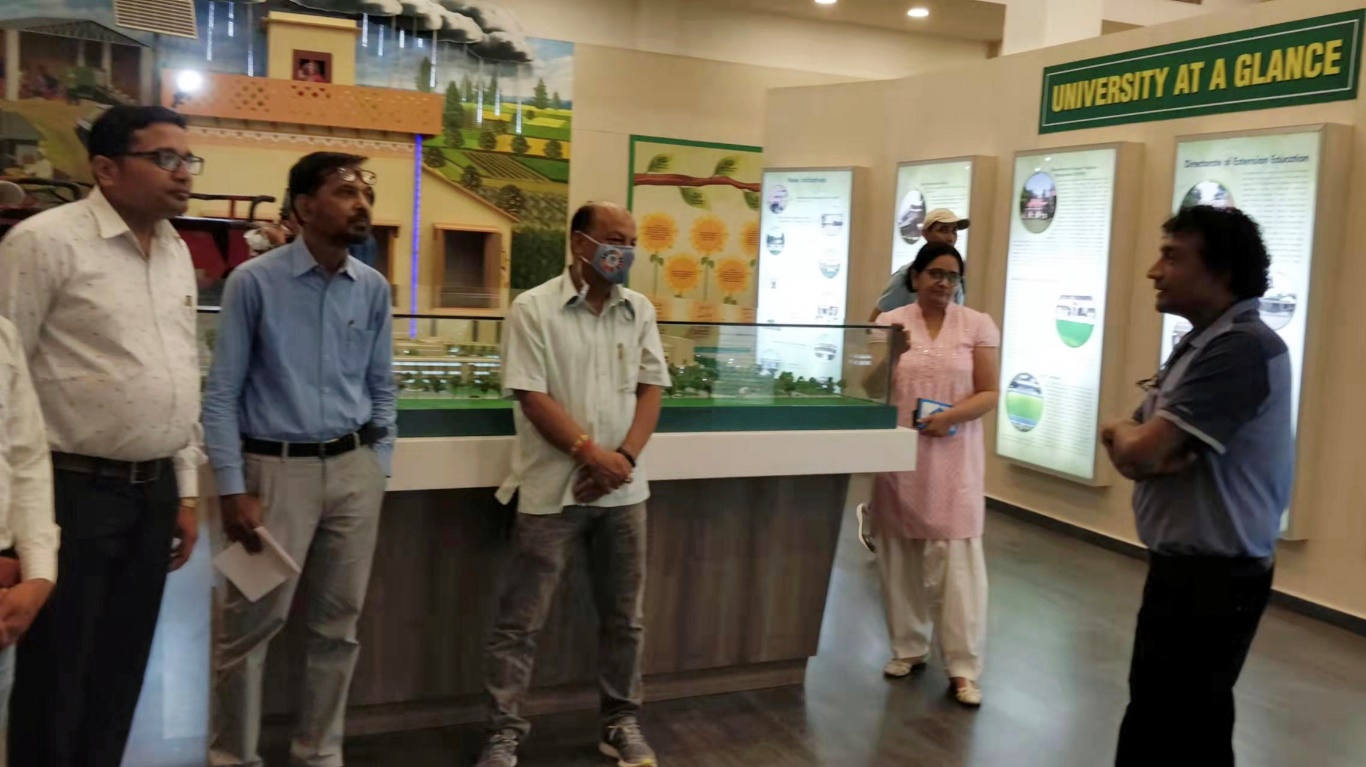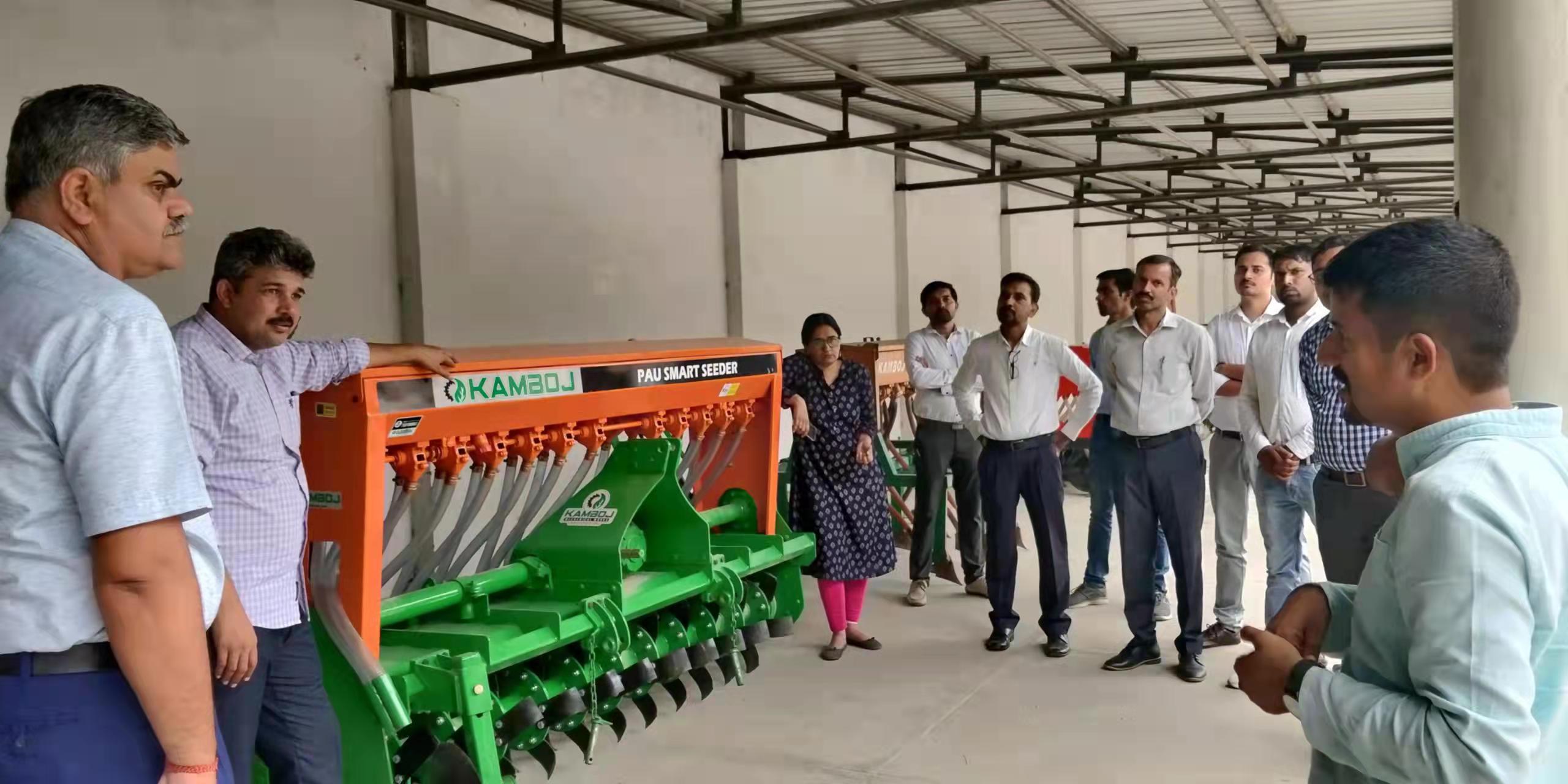Study Tour on Integrated Straw Management for Nepal Pilot Partners to India
The Centre for Sustainable Agricultural Mechanization (CSAM) of the United Nations Economic and Social Commission for Asia and the Pacific (ESCAP) is implementing a project on ‘Enabling Sustainable and Climate-smart Agriculture in Cambodia, Indonesia and Nepal through Mechanization Solutions for Integrated Management of Straw Residue’. The project, supported by the China-ESCAP Cooperation Programme, aims at addressing the problem of burning of straw residue, especially through the application of agricultural machinery.
Under the ongoing initiative, CSAM has now supported the establishment of a pilot site in Nepal (Terai region) in partnership with the Department of Agricultural Engineering, Purwanchal Campus, of the Institute of Engineering (IOE), Tribhuwan University. To support this pilot, a study tour for a 7-member delegation comprising of representatives of IOE, Department of Agriculture of the Government of Nepal, National Agricultural Research Council of Nepal, and Krishna Dana Udyog (a local enterprise at the pilot site) was organized in India from 19-27 June 2022. The delegation was led by Assoc. Prof. Jawed Alam, Head, Department of Agricultural Engineering, IOE. The objectives of the study tour were to 1) identify suitable agricultural machinery for in-situ straw management for the pilot site; 2) learn about the approaches for reducing straw burning and explore the possibility of technology transfer; 3) learn about machinery testing; and 4) explore the possibility of collaboration.
The team visited the Division of Agricultural Engineering (DAE) of the Indian Agricultural Research Institute (IARI) at Delhi where Prof. Indra Mani, Head of Division, and Prof. P. K. Sahoo, Principal Scientist, facilitated the visit, and shared DAE’s past and current research and development activities on both in-situ and ex-situ straw management. Dr. Livleen Shukla, Microbiologist, shared information about the recently developed ‘Pusa Decomposer’ fungi concentration which accelerates the decomposition of crop residue. Finally, the team visited the Biomass Utilization Unit and learned about different technologies of making fertilizer from crop residue.
The delegation next visited the Chaudhary Charan Singh Haryana Agricultural University, Hisar, Haryana (HAU). The delegates met Dr. B. R. Khamboj, Vice Chancellor of the University, and discussed about potential collaboration in conducting research and development activities. The delegation was briefed by Dr. Baldev Dogra, Dean of the College of Agricultural Engineering and Technology, and other faculty members, about the activities of the College in crop residue valorization and addressing crop residue burning. It visited labs and a testing centre of Farm Machinery and Power Engineering where Prof. Dr. Vijaya Rani, Head of the Farm Machinery and Power Engineering Department, Assoc. Prof. Anil Kumar Saroha, faculty member of the Department, and Er. Amit Kumar, Workshop Engineer, explained the working principles of in-situ machinery based on farm size, slope, soil and crop types.
Picture courtesy: Chaudhary Charan Singh Haryana Agricultural University
 Picture courtesy: Chaudhary Charan Singh Haryana Agricultural University
Picture courtesy: Chaudhary Charan Singh Haryana Agricultural University
 Picture courtesy: Madhusudan Basnyat
Picture courtesy: Madhusudan Basnyat
At Khanna (Punjab), the delegation was received by Dr. Harindra Singh, President of the Indian Fodder Manufacturing Association, and discussions were held regarding the importance of a balanced diet for cattle. Dr. Singh also took the delegation for visits to maize silage harvesting sites, silage baler manufacturing factories, and related farms. The delegation got an opportunity to learn about how a balanced diet is prepared for cattle in India.
Finally, the delegates visited a local manufacturer of agricultural machinery where various equipment are being produced for activities from land preparation to residue management such as Happy Seeder and Super Seeder.
 Picture courtesy: Madhusudan Basnyat
Picture courtesy: Madhusudan Basnyat
Overall, the study tour made an important contribution to knowledge exchange and cooperation on mechanization-based and other solutions for integrated management of straw residue and prevention of residue burning.
